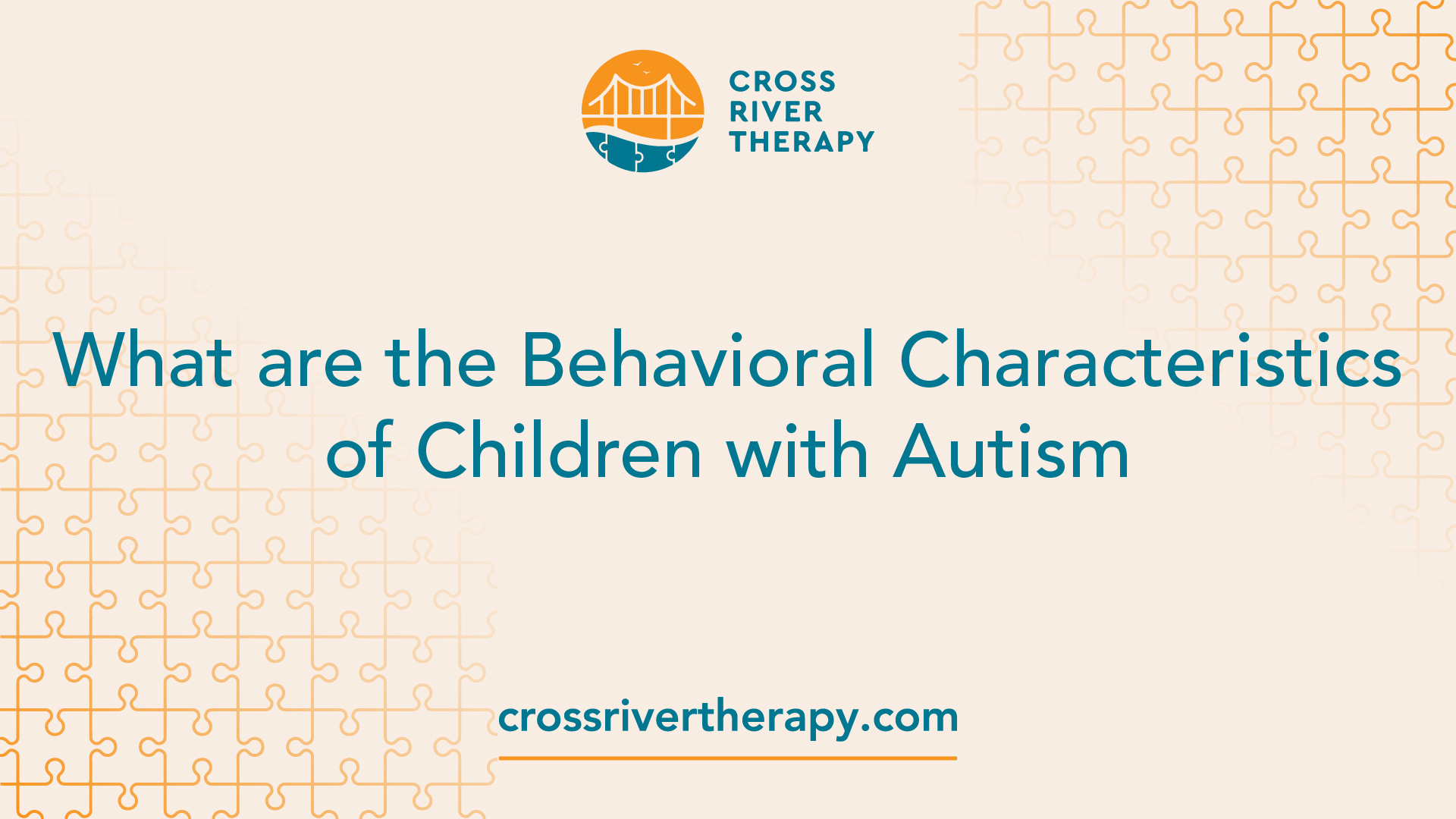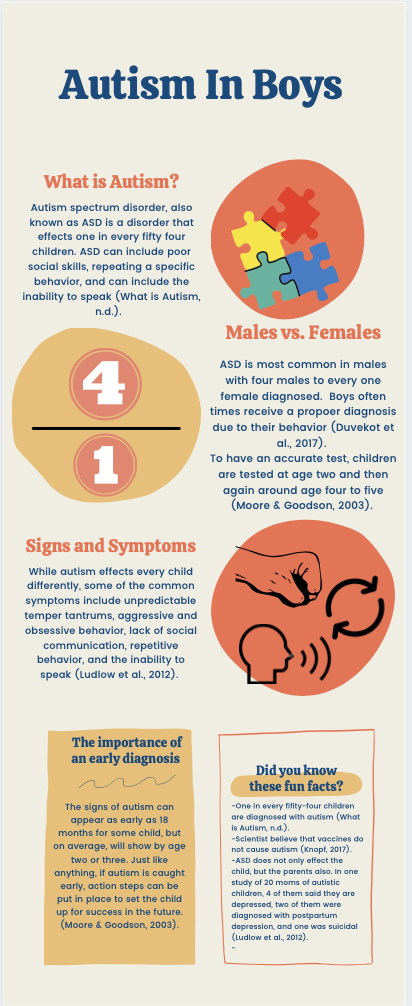Do Autism Spectrum Therapies guide developing independence in teens with ASD?
Do Autism Spectrum Therapies guide developing independence in teens with ASD?
Blog Article
Recognizing the Influence of Behavioral Autism on Day-to-day Live and Social Communications
You could not recognize how deeply behavior autism impacts everyday life and social interactions. Individuals on the range often browse a world filled with interaction obstacles and sensory overload. These challenges can lead to disappointment and isolation, impacting their relationships and total wellness.
Defining Behavioral Autism and Its Qualities
Behavior autism, commonly referred to as autism range problem (ASD), includes a series of problems characterized by obstacles in social interaction, interaction, and repeated behaviors. You may notice that people with ASD typically struggle to analyze social hints, which can bring about misconceptions in discussions. They may discover it difficult to establish eye contact or take part in tiny talk, making social circumstances really feel overwhelming.
Interaction troubles can manifest in numerous means, from delayed speech growth to a preference for making use of fewer words. Recurring behaviors, such as hand-flapping or rocking, can work as coping mechanisms to handle stress or sensory overload. These features can profoundly affect day-to-day life, making it necessary for you to understand and support those with ASD. By acknowledging these attributes, you can foster an atmosphere that advertises approval and encourages efficient communication, helping people with autism grow in their day-to-day interactions.
The Range of Autism: Comprehending Irregularity in Habits
Autism range disorder (ASD) isn't a one-size-fits-all diagnosis; it differs extensively among individuals. You may observe that some individuals with ASD show light signs and symptoms, while others might encounter more significant challenges. This variability can manifest in behaviors, rate of interests, and sensory level of sensitivities. You may run into individuals that are very spoken and involve quickly in discussions, while others could favor singular activities or interact non-verbally.
Moreover, the way people with ASD react to sensory input can vary significantly; some may be overwhelmed by brilliant lights or loud noises, whereas others thrive in stimulating settings. The range also consists of distinctions in social communications; some individuals may struggle to translate social cues, while others browse social settings with relative ease. Understanding this irregularity is crucial, as it assists you value each person's unique experience and dressmaker assistance to their particular requirements, fostering an extra comprehensive setting for every person.
Interaction Obstacles Encountered by People With Autism
When you communicate with people on the autism range, you may notice their distinct interaction difficulties. They commonly face difficulties with both verbal and nonverbal signs, which can influence their social communications. Recognizing these barriers is crucial for cultivating far better connections and support.

Verbal Communication Difficulties
Several people on the autism spectrum experience verbal interaction difficulties that can considerably influence their day-to-day interactions. You might discover it challenging to express your thoughts, sensations, or requires plainly. This can bring about disappointment for both you and those around you, as misunderstandings happen. You may fight with initiating discussions, preserving a topic, or recognizing nuances in speech. Often, you may choose making use of basic language or repetitive phrases, which can limit your ability to take part in much deeper conversations. Your tone, speed, or volume might not line up with social expectations, creating others to misunderstand your purposes. Acknowledging these obstacles can help you and your support network develop techniques to boost communication and foster much better links with others in your day-to-day live.
Nonverbal Interaction Obstacles
Verbal communication isn't the only challenge people on the autism range face; nonverbal interaction barriers can be just as considerable. These challenges can lead to misunderstandings or false impressions of social hints, making interactions feel overwhelming or complex. By resolving nonverbal communication, you can discover techniques to boost your social experiences and boost your overall top quality of life.
Social Communication Impacts
Social communications can commonly really feel frustrating because of the unique interaction obstacles dealt with by people with autism. You could have problem with interpreting social hints, making it difficult to comprehend sarcasm or body language. This can result in misunderstandings or unpleasant minutes in discussions. Additionally, launching and preserving discussions may feel challenging, causing stress and anxiety in social situations. You might favor organized settings, making spontaneous communications awkward. It's additionally typical to experience problem in involving in tiny talk, which can hinder forming brand-new relationships. Identifying these challenges can aid you find methods to boost interaction, such as practicing social skills in risk-free setups or utilizing aesthetic aids - Aba Therapist Near Me. Comprehending your demands permits you to browse social communications with better self-confidence and convenience.
Social Interaction and Partnership Building in Autism
While structure connections can be challenging for people with autism, comprehending their distinct perspectives and interaction styles can foster purposeful connections. You could notice that lots of individuals on the spectrum favor straight interaction and may fight with social cues or little talk. By being uncomplicated in your communications, you can assist develop a setting where they feel comfortable.
Put in the time to listen and observe how they reveal themselves. This insight can direct you in guiding discussions a lot more efficiently. Participating in shared rate of interests can also work as a bridge to much deeper connections. Whether it's a pastime, a preferred program, or a common enthusiasm, these typical strings can open doors to friendship.
Daily Life Routine: Navigating Approaches and difficulties
Steering everyday life routines can be particularly challenging for individuals with autism, particularly when unforeseen adjustments happen. To navigate these challenges, take into consideration implementing aesthetic timetables or lists.
Developing a regimen that consists of sensory breaks can likewise be valuable. This aids produce an understanding atmosphere.
Finally, technique mindfulness strategies to handle tension and anxiety. Easy breathing workouts or basing techniques can make a considerable he said distinction. By integrating these methods, you can wikipedia reference enhance your everyday routine and decrease disturbances, making life feel more workable.
Strengths and Capabilities of People on the Autism Spectrum
Understanding every day life regimens is just one facet of the autism experience. Numerous people on the autism spectrum have amazing strengths and abilities that set them apart. You could find that your interest to information is exceptional, enabling you to succeed in tasks that need accuracy and emphasis. Your capacity to assume outside package can result in ingenious solutions in various circumstances.
Moreover, your memory skills typically beam, particularly in areas of interest. Autism Spectrum Therapies. This knack for retaining information can make you an important resource in fields like scientific research, art, or innovation. You may likewise display solid visual thinking, enabling you to imagine complex concepts and address problems creatively
Furthermore, your one-of-a-kind point of view on the world can promote compassion and understanding in others, enhancing social interactions. Embracing these strengths not just enhances your self-confidence however also aids others value the diverse abilities you offer the table.
Producing Comprehensive Atmospheres for People With Autism
Developing inclusive environments for people with autism starts with developing sensory-friendly rooms that deal with their unique demands. You can additionally cultivate chances for social interaction, helping to develop links and relationships. By making these changes, you'll add to a more welcoming atmosphere for every person.
Creating Sensory-Friendly Spaces
While designing sensory-friendly spaces, it's vital to reflect on the distinct requirements of individuals with autism. Integrate peaceful zones where individuals can charge and pull away when bewildered. Consist of visual timetables or clear signage to help individuals navigate the area with confidence.
Advertising Social Interaction Opportunities
Creating sensory-friendly areas not only addresses specific comfort but also sets the phase for purposeful social communications amongst individuals with autism. Motivate peer mentoring, pairing individuals with autism with encouraging peers who can lead them via social scenarios. By applying these methods, you can enhance social possibilities, aiding people with autism develop friendships and reinforce their social skills in a risk-free, welcoming environment.

Often Asked Questions
How Can Buddies Assistance A Person With Behavioral Autism?
You can sustain a pal with behavioral autism by holding your horses, listening proactively, and appreciating their boundaries. Involve in activities they appreciate, interact honestly, and produce a comfy environment where they really feel valued and comprehended.
What Resources Are Available for Moms And Dads of Children With Autism?
You can discover various resources for moms and dads of youngsters with autism, consisting of support teams, instructional internet sites, and regional area solutions. Linking with other moms and dads can likewise supply important understandings and shared experiences to aid navigate difficulties.
Can Behavioral Autism Modification In Time?

Yes, behavioral autism can change over time. You could see changes in communication, social abilities, and behavior as your child expands. Early treatment and support typically play vital webpage duties in these developing modifications.
Just How Do Sensory Sensitivities Influence Life?
Sensory level of sensitivities can make daily experiences overwhelming. You may battle with intense lights or loud noises, causing stress or avoidance. Locating environments that fit your demands can greatly enhance your convenience and total day-to-day live.
What Are Usual Misconceptions About Behavioral Autism?
You may believe behavior autism just impacts interaction skills, yet it's more complex. Many assume people do not have compassion or intelligence, which isn't real. Understanding these mistaken beliefs aids foster approval and assistance for those on the range.
Behavioral autism, usually referred to as autism range disorder (ASD), encompasses a range of conditions characterized by difficulties in social communication, interaction, and repetitive habits.Social interactions can commonly feel overwhelming due to the special interaction difficulties faced by people with autism.Designing sensory-friendly rooms not just addresses private comfort however also establishes the phase for purposeful social communications amongst people with autism. Motivate peer mentoring, matching individuals with autism with encouraging peers that can lead them via social scenarios. By applying these strategies, you can enhance social possibilities, helping individuals with autism develop friendships and strengthen their social abilities in a risk-free, welcoming environment.
Report this page